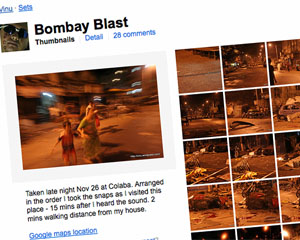Do you trust the telephone more than the internet, might have been a more valid question than that asked by media company Metrica’s UKPulse survey this week, when it questioned respondents on what they thought were the most trustworthy forms of media.
According to their press release (to which there is no link on the Metrica site), the study asked 13,000 UK adults whether they trusted the internet more than newspapers.
So far so good – it’s an important question. But in the company’s analysis of the results, it compared the internet with news sites.
“The internet in general has gained four percentage points, with 34% of UK adults now saying they trust its content. News sites as a specific online media type though do fair [sic] a lot better with 54% – more than national newspapers!”
That’s like comparing the percentage of people who trust the printed pages of books, with the percentage of people who trust Bill Bryson. It’s simply not a useful comparison.
The internet is the publishing medium, and is not comparable to TV channels or newspapers, which are editorially directed. The internet is the technology by which material is reproduced (in some cases the same material as that appearing in newspapers). When people said they trusted television they weren’t talking about their television sets, rather the channels they watch.
By and large, news site content is the same as the content of newspapers, so it seems bizarre that people trust online news sites more. What is even more baffling, is that blogs fared worse than news sites for gaining people’s trust. But, these very news sites have blogs.
I need persuading that any kind of fruitful analysis can be gleaned from this rather badly thought out study. When someone comes up with relevant and comparable categories then this type of study would be extremely revealing.
For example, do people trust a well-known newspaper journalist’s blog more than an unknown blogger’s?
Furthermore, as Adrian Monck points out in the comments on Roy Greenslade’s blog:
“The problem with trust polling is that it says nothing about the reliability of the media, whilst giving the appearance of providing an answer…”
Greenslade himself asks us about the significance of the increase in trust in UK media, but I think the real question to be asked here is how to profitably analyse people’s trust in different types of online media.
Does anyone know of any good studies conducted on people’s trust in new media? Or how best to measure the media’s reliability?
